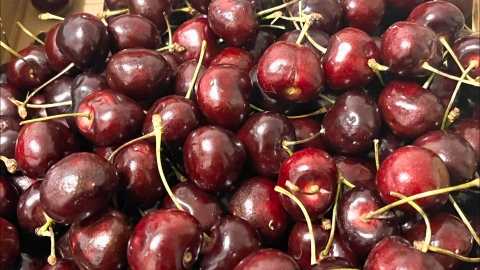Is it good to eat cherries during the postpartum confinement period?
Generally speaking, "sitting the month" refers to the postpartum period. It is usually beneficial for women to consume cherries in moderation during this time. The detailed explanation is as follows:

Cherries contain large amounts of vitamins and various minerals such as calcium, phosphorus, and iron, especially a high content of iron. These nutrients are essential for postpartum women during the postpartum period, helping to replenish the body's nutritional needs and enhance physical strength. The iron and vitamin C in cherries can promote hemoglobin regeneration and iron absorption, thus preventing postpartum anemia. In addition, cherries are rich in dietary fiber, which helps promote gastrointestinal motility and relieve constipation during the postpartum period.
Although cherries are nutritionally rich, postpartum women should still consume them in moderation. Cherries are slightly warming in nature and contain a certain amount of fructose; excessive consumption may cause symptoms such as heatiness, dry mouth, sore throat, and swollen throat, and may also lead to adverse reactions such as elevated blood sugar or iron toxicity. Cherries should not be consumed with durian, as this may increase the burden on the gastrointestinal tract or cause excessive internal heat.
A diversified and balanced diet should be maintained during the postpartum period. It is recommended to have a balanced intake of broccoli, eggs, fish meat, etc., to meet the body's needs for various nutrients. At the same time, avoid eating spicy, stimulating, raw, cold, or greasy foods that are detrimental to physical recovery.







